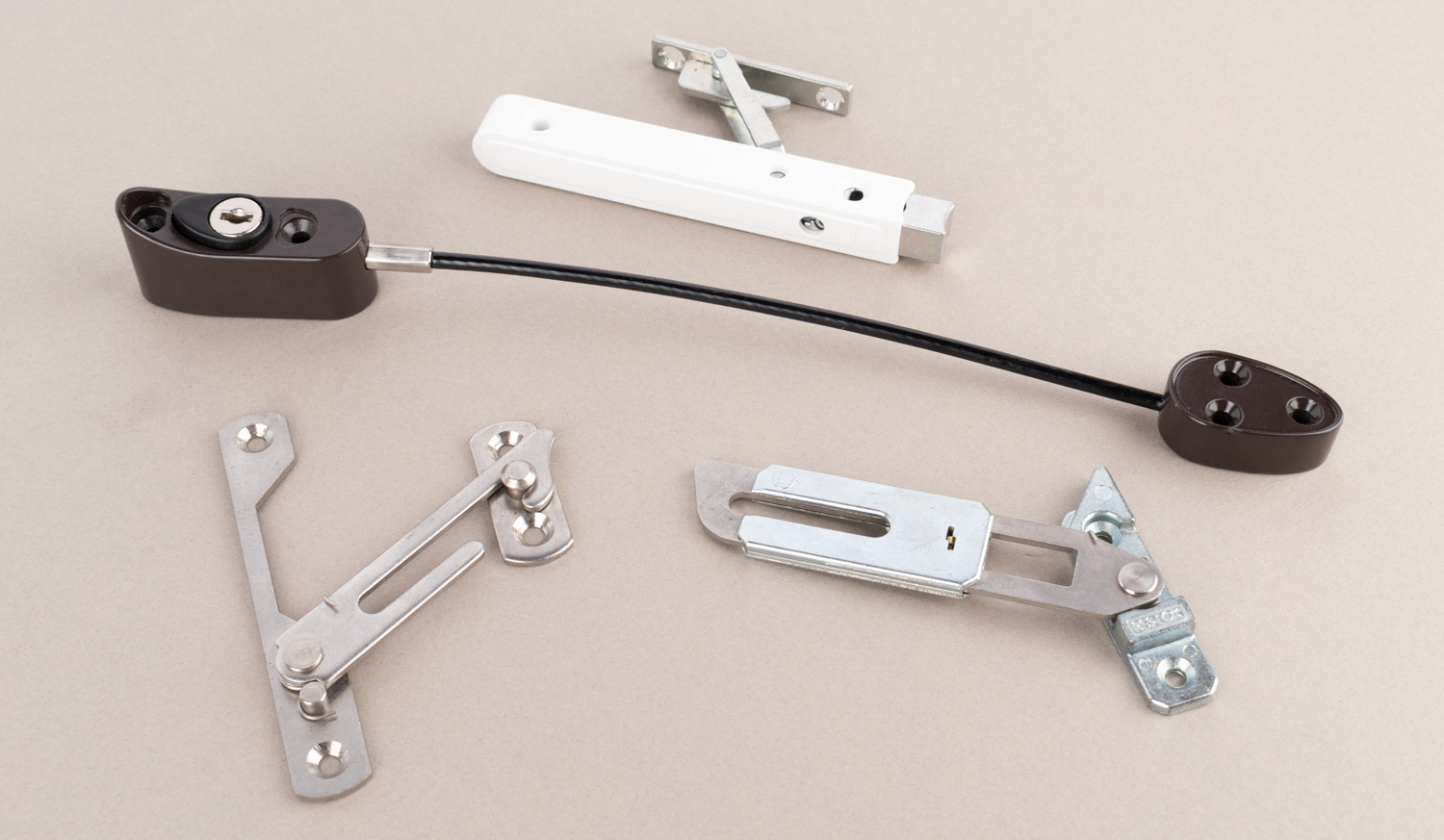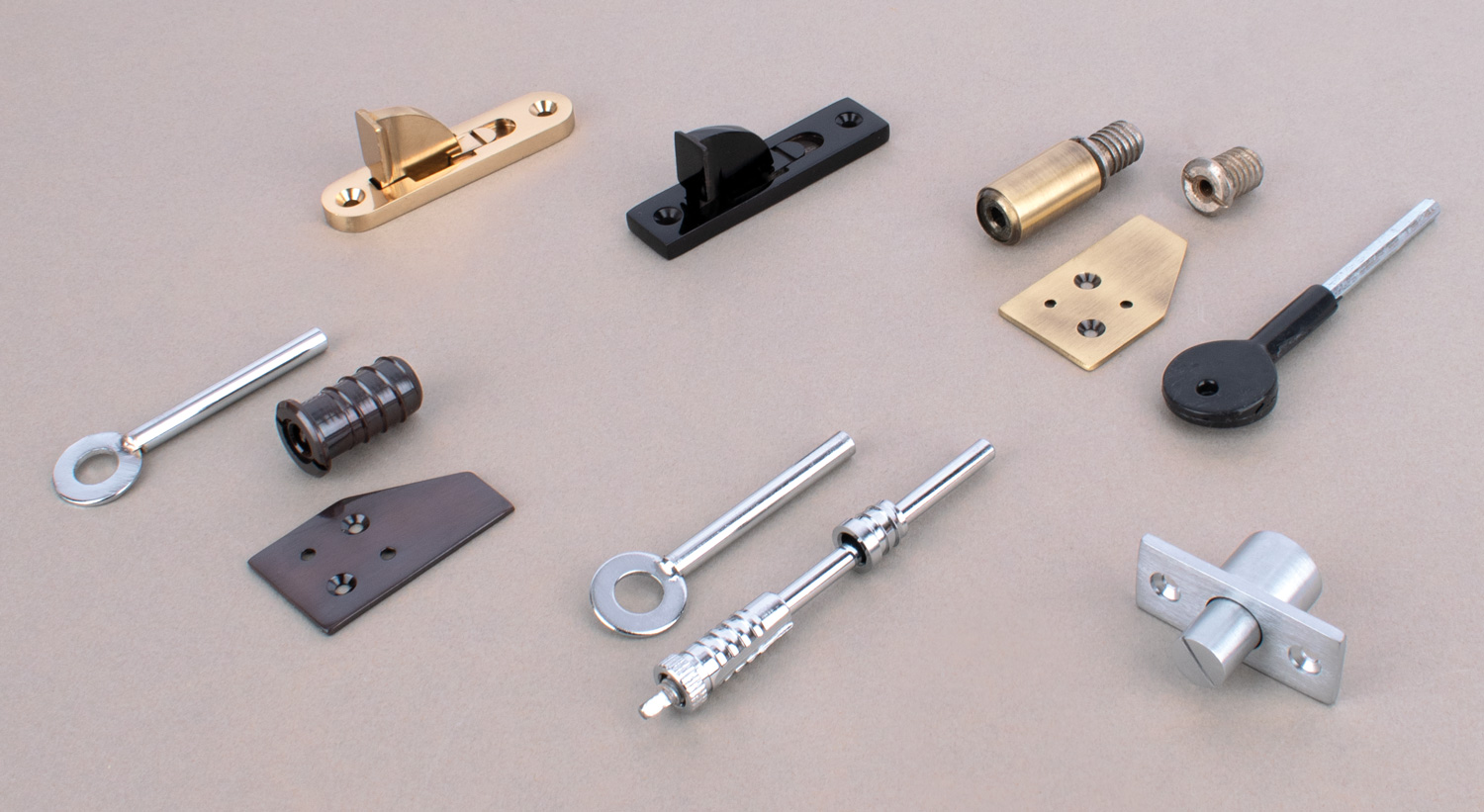FREE UK DELIVERY
On orders over £60 (Trade £95)
FREE UK DELIVERY
On orders over £60 (Trade £95)
Technical Knowledge
Experienced & Dedicated Staff
Trade Discounts
Register or login for trade prices
17 June 2025

When it comes to building safety in schools, care homes, offices or residential properties, window restrictors, also known as opening limiters, play a vital role. These simple yet effective devices help reduce the risk of accidents, particularly falls from height.
A window restrictor is a safety mechanism that limits how far a window can open. Designed to improve ventilation without compromising safety, these devices help prevent windows from opening beyond a certain point, particularly important in environments where falls could result in injury.
Certain types of buildings must, by law, have window restrictors installed. UK health and safety legislation requires them in settings where:
All public institutions have a legal duty to ensure a safe environment. Employers must carry out a risk assessment conducted by a ‘competent person’ to determine whether restrictors are needed in the workplace.
For new-build projects, architects must comply with relevant Building Regulations, which cover window safety, emergency escape routes, and security. It’s essential to consider the intended use of the building and the needs of the occupants to ensure the correct solution is installed.
In the UK, window restrictors are primarily governed by Part K of the Building Regulations, titled Protection from Falling, Collision and Impact. This part outlines safety measures for various building elements, including windows, to prevent accidents and injuries.
At SD Hardware, we always encourage our customers to familiarise themselves with current regulations before starting a project.
There are three primary settings where restrictors are a legal requirement:
1. Schools
Windows in schools must not open more than 100mm, a rule put in place to prevent children from falling or throwing objects from windows. This ensures a safer learning environment for pupils and staff alike.
2. Healthcare Facilities
Hospitals and similar healthcare environments have a responsibility to safeguard patients—particularly those who may be disorientated or vulnerable due to mental health concerns. Restrictors help prevent dangerous incidents near open windows.
3. Care Homes
In care homes, where residents may have limited mobility or cognitive impairments, window restrictors are essential. They reduce the risk of falls and help staff maintain a secure, monitored environment.
When Are Window Restrictors Recommended?
Even where window restrictors are not legally required, many people choose to install window restrictors for added peace of mind.
Residential Properties
Families often opt to fit restrictors in homes, especially where young children are present. Children under five are statistically most at risk of falling from open windows, making this a worthwhile precaution.
Workplaces
Although not always mandatory in office or commercial settings, window restrictors are a sensible safety measure. Employers often choose to install them following a health and safety risk assessment as a proactive way to prevent accidents.
If you’d like to read more about the risks associated with falls from windows, the Health and Safety Executive (HSE) provides detailed guidance on this topic.
Whether for compliance or personal preference, there’s a variety of window restrictors available, each designed to meet different needs, aesthetics and window types such as casement or sash windows.
Restrictors for Casement Windows
Concealed restrictors, such as the Key Locking Restrictor and the Stainless Steel Restrictor Stay are fitted within the frame of the window and engage automatically. These are more discreet, harder to tamper with, and allow windows to remain open at a fixed, secure distance. They also leave a clean appearance to the window.
Face-fix restrictors are fitted to the surface of the window frame and are accessible from the inside. Examples include the Vanguard Security Lockable Window Restrictor and the ERA Cable Safety Restrictor. These use a durable steel cable encased in rubber to provide strong protection. Despite being surface-mounted, they are just as secure as concealed systems.
Friction Hinges with Integrated Restrictors
Some friction hinges also include an integrated restrictor. The Nico Egress Friction Hinges we offer in 12 or 16 inch sizes include this feature.

Sash window restrictors are fittings that can be installed on a Sash Window to limit how far the lower sash can be opened vertically.
Types of Sash Restrictors
As with any window safety measure, it’s vital to select a product that matches both the window type and the usage requirements of the building. Most window restrictors can often be retrofitted, making them a practical option for upgrading existing windows to meet modern safety standards.
At SD Hardware we know the importance of good customer care. That’s why our team are always on hand to help with your queries.
Contact Us
Email: sales@sdhardware.co.uk
Phone: 01752 651330